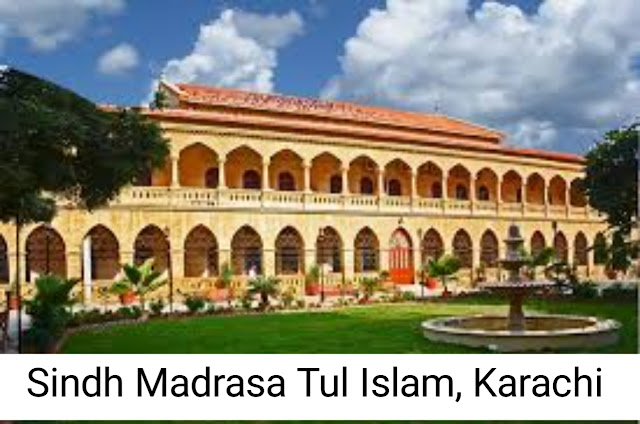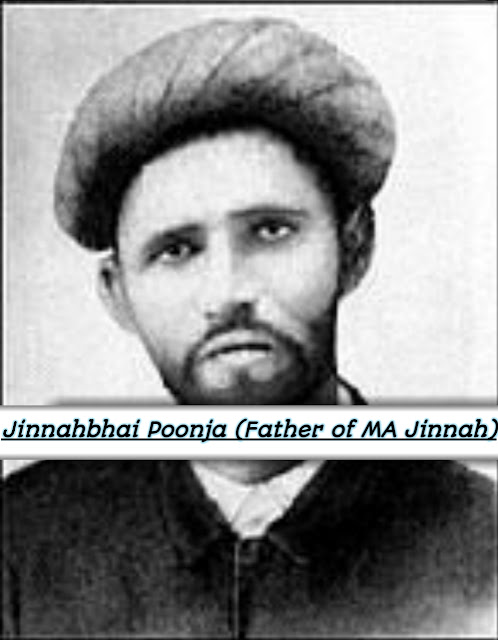Mr. Mohammed Ali Jinnah, is also known as Quaid-i-Azam (Great Leader). He was born on December 25, 1876 in Karachi and died on September 11, 1948 and buried in Karachi. MA Jinnah was an Indian Muslim politician, who was the founder and first governor-general (1947-48) of Pakistan. Pakistanis remember him as father of nation.
Early Life
Mr. Muhammad Ali Jinnahbhai has seven siblings and he was eldest of them. His father name Jinnahbhai Poonja, was a prosperous, well settle and well-known merchant of his time, and his wife and Jinnah’s mother was Mithibai. His family was of the Khoja caste, they converted to Islam from Hinduism centuries ago and follow Aga Khan. There is some confusion regarding Jinnah’s date of birth. Misconception was arise from his school records which give a date of October 20, 1875. But he himself told and wrote that it was December 25, 1876.
After home tuition, Jinnah was sent to the Sindh Madrasa Tul Islam, Karachi which is now a university (Sindh Madrasa Tul Islam) in Karachi. Later he was admitted to the Christian Missionary Society High School which is also in Karachi. Here at the age of 16 he passed the examination of matriculation held under the University of Bombay which is now University of Mumbai, in India). An English friend of Mr. Jinnahbhai Poonja, he decided to send MA Jinnahbhai to England to get experience in business. But Jinnah had setup his mind to become a barrister. His mother was not happy on the decision of Poonja Jinnah to send young MA Jinnahbhai to England. Before leaving for England he got married according to the custom of time.
He joined Lincoln’s Inn in London which was one of the legal societies that prepared students for the bar. At the age of 19, in 1895, he was the youngest Indian who called to the bar. Here he changed his name from Muhammad Ali Jinnahbhai to Muhammad Ali Jinnah (MA Jinnah). In London Jinnah faced two severe sorrow-the deaths of his young wife and his beloved mother. Nevertheless, he completed his formal education. Here he studied and observed the political system of British by often visiting the House of Commons. He was strongly influenced by the theory of liberalism of William E. Gladstone, who had become prime minister for the fourth time in 1892, when Jinnah arrived in London. Jinnah also took interest in the affairs of India and Indian students. When Dadabhai Naoroji, the Parsi leader, leading Indian nationalist, ran for the British Parliament, Jinnah and other Indian students worked for him day and night. Their efforts became successful and Naoroji became the first Indian to sit in the House of Commons.
When Jinnah came back to Karachi in 1896, he found that the business of his father suffered and losses, now he had to depend on himself. So, he decided to start his legal practice in the Bombay High Court, but it took him years of hard work to establish and prove himself as a lawyer.
Later he turned actively toward politics. He divided his interest between law and politics, and chose the law as profession while politics as a hobby. He was not an extremist in the matter of religion but a Muslim in a broad sense and had nothing to do with sects. His interest and attraction for women was also limited. In 1918, at the age of 42 Mr. Jinnah married to 18 years old Rattenbai (Rutti) who was the daughter of a Bombay based Parsi millionaire Sir Dinshaw Petit. Although his father-in-law was against this marriage. Mr. and Mrs. Jinnah had one daughter, Dina, but the marriage was happened unsuccessful and Jinnah and Ruttie separated soon. The only companion of Muhammad Ali Jinnah was his sister Fatima Jinnah.
Entry Into Politics
Jinnah first time entered into politics by participating in the annual session of All India National Congress in 1906 which was held at Calcutta. In this session the party began to divide between those demanding for dominion status and those in favor of independence for India. After four years Jinnah was elected to the Imperial Legislative Council which was the beginning of a parliamentary career. In Bombay he came to know, Gopal Krishna Gokhale, the prominent Maratha leader. Jinnah was greatly influenced by him and to become “a Muslim Gokhale.”
The main element of Jinnah’s politics was the admiration of British political system and to raise the honor of India and Indians in international community. At the same time he also looked for the interest of Muslim community in the context of Indian nationalism.
By the beginning of twentieth century the Muslims felt fear from the amalgamation of Muslim with Hindus. To safeguard the Muslims interest All India Muslim League was formulated in 1906. But Jinnah remained separate from it. In 1913, when he assured that the league was as devoted as the Congress Party to the political emancipation of India, Jinnah join the league. When the Home Rule League was came into being, he became its chief organizer in Bombay and elected president of the Bombay branch.
Political Unity
In the beginning of his political career Jinnah was an advocate of Hindu-Muslim unity and got the title of ‘Ambassador of Hindu-Muslim Unity’. In the result of his efforts that the joint session of All India Muslim League and All India National Congress was jointly held to facilitate mutual consultation and participation. This happened first in Bombay in 1915 and then in Lucknow in 1916. The second session was concluded with Lacknow Pact. Under the pact, the two both parties finalized the scheme of constitutional reform that became their joint demand. It was a deal of give and take, but the Muslims got one important benefit in the shape of separate electorates, already conceded to them by the government in 1909 but resisted by All India National Congress.
Meanwhile, a new personality in Indian politics had appeared in the form of Mohandas Karamchand Gandhi alias Mahatma Gandhi. Both parties, the Home Rule League and the Congress Party had come under his control. Gandhi’s non operation movement and pro Hindus approach pressgang Jinnah to left Home Rule League and All India National Congress in 1920.
For a few years he kept himself separate from the political movements. He was still an advocate of Hindu-Muslim unity and to adopt constitutional way for the achievement of political ends. He used the Muslim League platform for the propagation of his thoughts and views. But during the 1920s Jinnah, had been overshadowed by Congress and the religiously oriented Khilafat movement started by Indian Muslims.
When the failure of the noncooperation movement and the birth of Hindu revivalist movements led to riots between Hindus and Muslims, the Muslim League began to lose strength and unity, the leaders of provincial Muslim formed their own parties to protect their needs. Thus, Jinnah’s started struggle to convert the Muslim League into an enlightened, unified political body during the following years. He prepared AIML to cooperate with other organizations. In addition, he had to convince the Congress Party, to settle the Hindu-Muslim conflict.
To convert this dream into reality was the chief purpose of Jinnah during the late 1920s and early 1930s. He worked for this purpose within the legislative assembly, during the Round Table Conference in London (1930–32), and through his famous “14 points,” which included
1. proposal for a federal form of government,
2. rights for minorities,
3. one-third representation of Muslims in the central legislature,
4. separation of Sindh from the rest of the Bombay province, and
5. Bring of reforms in the North-West Frontier Province. etc and many others
His failure to bring about even minor amendments in the Nehru Report proposals (1928) over the question of separate electorate and reservation of seats for Muslims in the legislature frustrated him. He found himself in a exclusive position at that time: many Muslims were of the view that he was too nationalistic in his thoughts and the interests of Muslim were not safe in his hands, while the Congress Party would not even meet the moderate Muslim demands halfway. Indeed, the Muslim League itself was divided. The Punjab Muslim League was against Jinnah’s leadership and organized itself separately. In disgust, Jinnah settled in London from 1930 to 1935 and devoted himself for practice of law before the Privy Council. But soon he was persuaded to return home to head a reconstituted Muslim League.
Preparations started for the elections under the Act of 1935. Jinnah still was of the views that cooperation between the Muslim League and the Hindu-controlled Congress Party is possible and with coalition governments in the provinces can be formed. But the elections of 1937 proved to be a turning point in the relations between the two political parties as well as two nations i.e.Muslims and Hindus. Congress got a huge majority in six provinces, and the league did not perform well. The Congress Party decided not to form coalition government with the All India Muslim League. This decision of Congress Party was created an endless gulf in relationships between Hindu and Muslim .
Founder of Pakistan
Jinnah had originally been disputed about the practicability of Pakistan, an idea that the poet and philosopher Dr Muhammad Iqbal had reported to the annual session of Muslim League in Allahabad in 1930, but before long he came to know that a Muslim homeland on the subcontinent of India is essential for safeguarding Muslim interests and the Muslim way of life. He feared so much as the future of Indian Muslims was not safe in the united India. To provide guard against that fear, he launched a countrywide campaign to warn Muslims of the insecurity of their position. He converted the Muslim League into a powerful instrument for the unity of Muslims.
At that time, Muhammad Ali Jinnah emerged as the prominent leader of Muslim nation. Time began to move fast. On March 22–23, 1940, in Minto Park Lahore (now Greater Iqbal Park), the All India Muslim League adopted a resolution to form a separate state, Pakistan by combining the Muslim territory. The idea of Pakistan was first opposed by the Congress. But soon it captured the imagination and demand the Muslims. In the opposition of Jinnah were many influential Hindu leaders, including Gandhi and Jawaharlal Nehru. And the British government seemed to failed in maintaining the political unity of the Indian subcontinent. Jinnah led the independence movement with such and courage that ultimately both the All India National Congress and the British government had no option but to agree to the division of India. Thus Pakistan emerged as an independent state in 1947.
Initially Pakistan opted the Act of 1935 with some amendments as an interim constitution of Pakistan. According to this interim constitution Jinnah became the first head of the new state. Although he faced with the serious problems of a newly born state Pakistan, but he coped and managed problems with authority.
Mr. Jinnah was not regarded as only the governor-general but also rewarded as the father of the nation. He worked hard till his last breath.



















Comments
Post a Comment